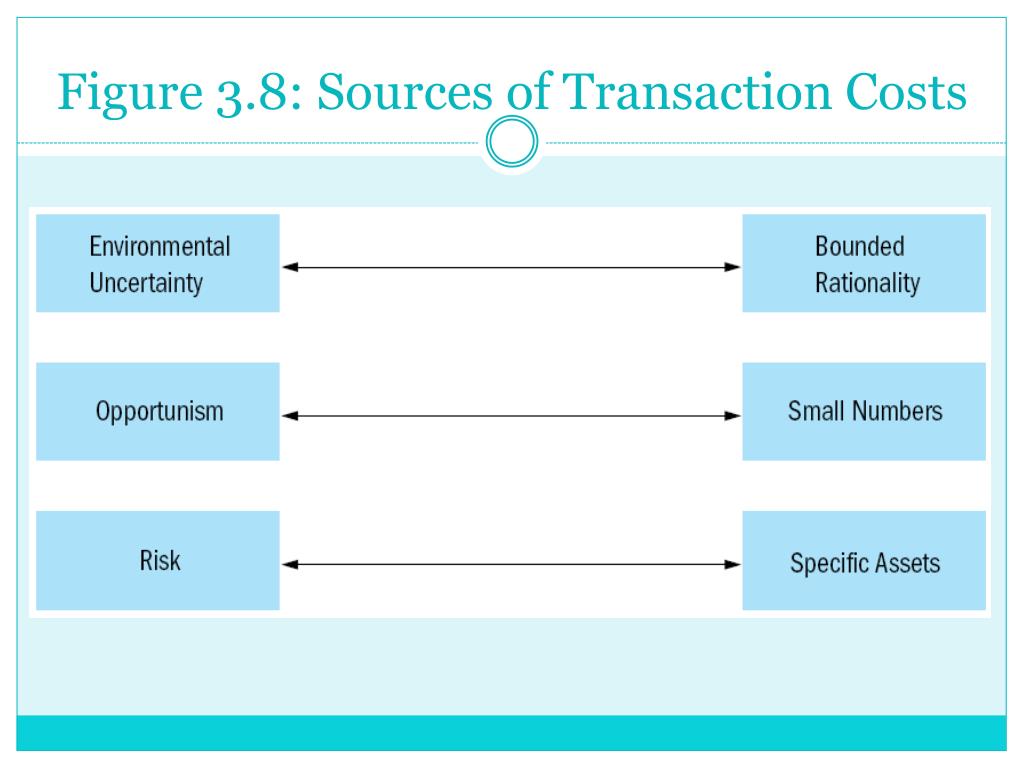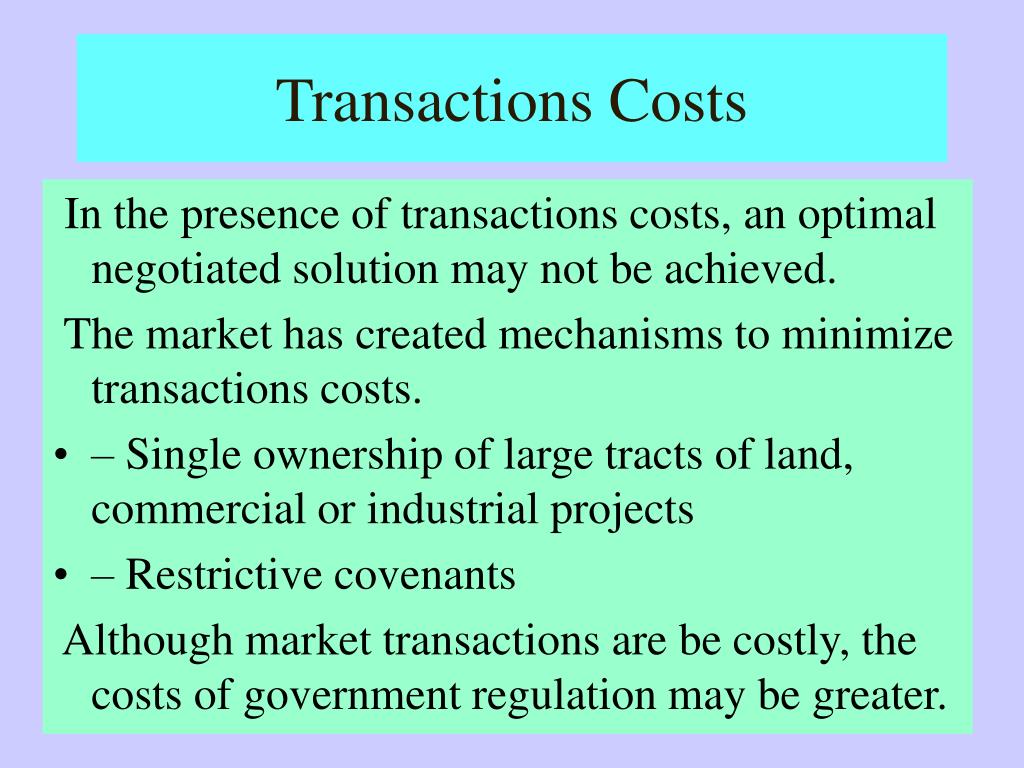
In the conventional theory developed by Demsetz ( 1967) and Alchian and Demsetz ( 1973), property rights are assumed to spontaneously emerge as a result of interacting agents responding to new or different forms of technologies and market opportunities that create social benefits and costs. Why Are Property Rights Thought to Reduce Transaction Costs? Unpacking the Theory
#HIGH TRANSACTION COSTS WILL TEND TO FREE#
At the heart of this literature is the belief that private property rights eliminate transaction costs associated with primitive communal ownership of assets by solving collective action problems such as free riding, moral hazard, and tragedy of the commons. This new strand of literature also led to advancements in the economics of property rights, exploring how the structure of rights affects not only the workings of a market system but also influence the allocation of resources and economic performance historically ( North, 1981 Alchian & Demsetz, 1973). New institutional economics (NIE) theorists introduced the role of transaction costs and property rights into economic analysis, especially with regards to the analysis of externalities and market failures ( Coase, 1960). For instance, in the world of Robinson Crusoe, it is assumed that agents can interact in markets to exchange at zero transaction cost due to well-defined property rights ( Starr, 2011). This systematic relegation of the role of critical factors that create transaction costs within the context of property rights seems to resonate with the assumption of zero transaction cost in neoclassical economics. However, Locke failed to critically appreciate significant transaction costs associated with the operation of these inalienable rights, such as the cost of getting people to agree on the allocation and outcomes of property rights and the cost of their enforcement. It is widely believed that John Locke was the first great thinker on property rights, owing to his influential work, Two Treatises of Government, which made a passionate argument for inalienable rights to life, liberty, and property, as well as the limited but crucial role of the state in the enforcement of such rights. The origins of the mainstream view of property rights In short, political settlement means the distribution of power among different groups. Khan ( 2018) defines political settlements as “social orders characterised by distributions of organizational power that together with specific formal and informal institutions effectively achieve at least the minimum requirements of political and economic sustainability for that society”.


In this respect, the political settlements framework developed by SOAS economist Mushtaq Khan can enrich our understanding of the operations of property rights in developing countries.

Major emphasis is placed on social conflicts and organization of power which are missing from the conventional analysis of property rights. This piece reviews the mainstream explanation of the relationship between property rights and transaction costs and then evaluates factors that can inhibit property rights from reducing relevant transaction costs, which include distributional conflicts, costly enforcement capacity, political settlement, and measurement problems. Specifically, there is a need for an alignment of interests among powerful political and economic interests if property rights are to be more efficient at reducing transaction costs.Ī fundamental limitation of contemporary property rights theory is its inability to incorporate factors that might reduce property rights from solving transaction costs, particularly in developing countries.

While critical analysis of these factors is missing in the mainstream economics approach to property rights, it is obvious that incorporating such analysis will be crucial in designing policies to minimize transaction costs that hinder an efficient functioning of property rights. Transaction costs due to distributional conflicts, political settlements, and weak enforcement capacity have important implications for the implementation of property rights in developing countries.


 0 kommentar(er)
0 kommentar(er)
